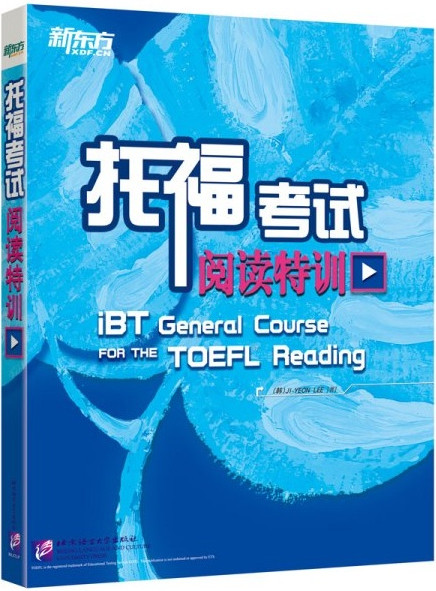3口语
口语题相对简单,除了1,2题,后四道的内容多少都已经有了提示,剩下只需要有效组织语言即可。现在想来有些后悔,因为考试前我只完整做过两套口语题,根本没有好好的分析过后四题要怎么分配时间梳理思路。考试的时候内容我都抓住说好了,可是后四题每次都是到了最后十秒才发现专注着把记的点说全面结果时间却不够用了,只能随便扯一句话匆忙总结,甚至有两道题最后一句话都没有录全。回想起来,我相信通过一定程度的练习,这些都是可以完全避免的。口语难在两点,一是没话说,另一个则是说不完。没话说,通过扩大词汇量提高阅读听力效率,和多说多练培养语感可以一定程度的有所提高。而说不完的问题,则是百分百可以通过练习和反复校对避免的。比如第五题如果在描述冲突上浪费太长时间过多赘述无用细节,那么题目所要求的表达自己观点并给出理由的部分就完全没有时间来回答,也就会相应的失分。每道题的所有需要表达的内容在题目里都已经充分说明了,所以建议大家在备考的过程中,每次都用计时的方式模拟考试真实场景并且加以录音。录音过后再重新听,找出时间分配不合理,以及基础语法错误的地方,下一次争取有所改善。自己水平有限的同学们也可以使用高质量的模板来规范自己的答题节奏。用这种每次模拟的方式假以时日一定会在口语上找到突破。
4写作
写作方面,基础语法一定不能错,高级从句建议适当学习。我自己习惯用复杂从句,但在考试过程中也记得着重穿插一些高效表达的简单句,来让文章更加活泼丰满。综合写作笔记左右分栏,逐条分别记录三个观点以及对应驳斥关键词。独立写作可以说阅读tpo材料的总结帮了我很大的忙。相对于模板来说,我相信托福阅卷老师们更希望看到真实的写作发挥,所以我一直坚持不使用模板自己写。基础薄弱的同学们可以初期借鉴高质量模板对于作文结构进行规范,具体词汇和词组的运用靠的是日积月累的存储,临时抱佛脚对于写作一项并没有太大用处。每天坚持阅读不求多,但求精,五到十个高质量衔接词和短语,在写作过程中主动进行词汇替换。同时,独立写作的阐述部分,记得纯论述和有说服力的例子相结合,给文章增加一些出彩的地方而不是一尘不变。这次我的作文中间三段我选择第一段重点文字论述,第二段加入个人亲身经历提高读者兴趣,最后一段回归文字论述相对简短,加上首尾各一段高效总结。每一个词都用心思考尽量不要过度重复,每一句话都努力运用能力范围内的所有花样表达方式。从句,强调句,简单的倒装,甚至可以运用修辞手法,设问句等等中文中我们也会用到的表达方式,来让文章多几个层次。
1备考总结
总的来说,所有的经验都来源于大量的练习。即使基础相对不错的我,也在后悔没有更多的刷题和复习。但越来越多的例子和经验证明,对于托福这种厚道不设陷阱的考试来说,功夫不负有心人。只要努力够,一定可以拿到高分。无论哪个部分,都希望大家可以更多的关注自己做题的感受,而非别人的经验。包括官方指南,所有资料对于考生的帮助都只在于辅助而非决定答题的所有内容。所以希望大家在备考时可以学会与自己对话,从错误中学习,最终超越极限。祝大家考试成功!
作者写作原文回忆(30分范文哦):
Some high school teachers spend most of the class on lecturing their students while the students listen and take notes. The other high school teachers prefer to spend more time on discussions and projects sharing their ideas with each other. Which do you think is more effective for students to learn?
It has been a long tradition for teachers to lecture and for students to merely listen and take notes. Nowadays, there appeared to be an alternative in teaching by providing students opportunities to participate in discussions and projects to share ideas and to communicate. Personally speaking, I consider the latter more interesting and motive in the process of learning for three reasons.
To start with, classroom is a place where thoughts collide and new ideas generate. Participating in those collective activities, students may communicate not only with each other, but also with their teachers. By exchanging ideas with classmates, students can draw on others’ merits and absorb new concepts. Also, teachers can capture the instant feedback of students and then adjust their teaching methods accordingly. This mechanism is definitely missing in our traditional teaching patterns solely consisting of lecturing and note-taking. Hence, discussions and collective projects present students the precious opportunity to reflect on new perspectives and improve their own understanding towards the relative contents.
Moreover, students tend to comprehend and memorize more through practice. I still remember my interpretation class in college. Instead of plain teaching without any interactions, my teacher suggested us to record every word we interpreted. At first, I found it embarrassing and meaningless. However, after several times of recording, mistakes revealed. Thanks to those mistakes, I realized where my strength and weakness lied. Without the actual in-class practice, I would never be able to do so. Although note-taking is better than just listening, exercising is way more practical than note-taking. Therefore, I believe in-class activities allow students to detect their hidden mistakes, which will facilitate their future learning and academic success.
Finally, a positive atmosphere is of vital importance. Comparing to traditional methods of teaching, activities and discussions can live up the mood in the classroom on a very large basis in a rather short period of time. Since students are experiencing a hard time concentrating for a long time, I guarantee that no single one of them would choose a dull and plain lecture over an interesting and enthusiastic class where students are actively involved. As an essential part of those activities and projects, students may feel a strong sense of participation, which will in turn, enhance their passion and trigger their interests. Due to actual involvement, students will a hundred percent perceive the main points vividly.
Taking these reasons into consideration, it’s responsible to conclude that collective projects and discussions may very well benefit the students in the long run, and overweigh traditional teaching approaches.
- 01-04·想要托福口语28分 你需要掌握3个方面练习技巧
- 12-30·2018托福听力考试题型及解题技巧整理
- 12-30·托福听力如何提升?制造听力环境很重要
- 12-30·托福听力考试做好选项分析助你得高分
- 12-30·为什么你的托福听力总得低分?只因你没有做好听力题的选项分析
- 12-08托福词汇记忆最给力的10种方法
- 12-012017年托福听力最基础的12个技巧
- 11-102017年托福口语独立题扩展该怎么做?
- 11-06托福阅读考试26分是这样做到的
- 10-18提升托福阅读成绩这3个问题必须要注意
编辑推荐
- 模拟试题
- 历年真题





